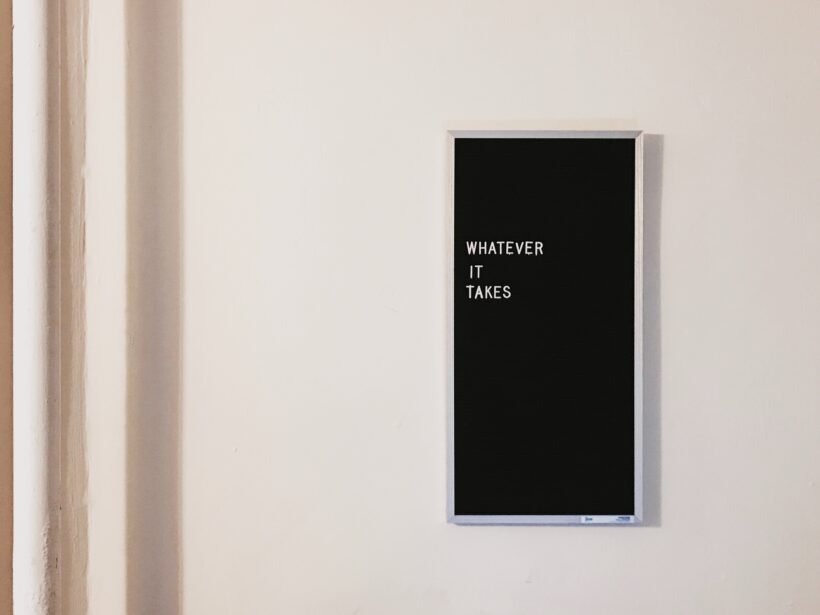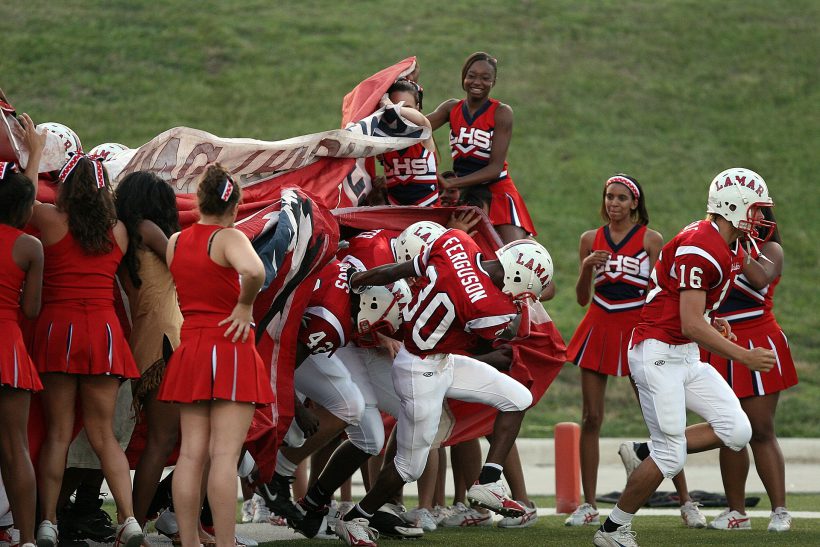In college admissions essays, students are asked to identify their core traits, explicitly and implicitly. However, most teens I know don’t sit around thinking about this. Despite the myth that they are completely self-absorbed, I believe teens are often thinking about self relationally. For example, like my stepson, they might be spending their time in awe at human talent, watching people chase a wheel of cheese down a hill. (Go ahead, take a look.) It can feel really hard to dig in and identify personal descriptions, even armed with lists of adjectives or exploratory worksheets to help you choose. Not sure how to figure out what your core qualities are? Feeling kinda flat and regular? I’ll give you the secret trick to identifying personal characteristics for your college essay: Text your besties to ask them about your core traits! That’s right, do it now! I’ll wait… Choose 1-3 friends who you think know you best. People who really get you. Text them this: “Hey, what are the first three words that come to mind when you think of me? How would you describe me? No cursing: it’s for my college application!” Then wait. See what they say. Once they respond, read their words aloud. See how you feel when you read them. If they don’t text you back quickly enough, text them again: “U R RUINING MY COLLEGE ADMISSIONS PROSPECTS. PL REPLY.” (If they still don’t text you– bite it, and call them. Write down what they tell you, verbatim). You could also ask, “What is the best thing about being friends with me?”. When my stumped stepson tried this, his besties answered in about 5 seconds, eliminating many hours of agony while he tried to get started on his own. The words they chose for him were completely apt. He turned that frown upside down and started writing a supplement. Reflect on their responses about your core traits What did your friends say were some of your core traits? Consider: Does it feel true? Continue Reading …
brainstorming
When Should I Start My College Essay?
I'm going to answer this common question, "When should I start my college essay?" with three contradictory responses. Enjoy! The best time to start your college essay is: Right now! As early as possible. Whenever the stress response will most work in your favor. Let's break it down. There are at least three right approaches: First, I don't know when you're asking this question. If it's February (when I'm writing this), and you're a junior, I'll give you some general tips. Right now you can: Learn about craft in writing. What makes a great opener? How about a dead one? Can you identify great, succinct description? Work on assessing tone. What kinds of personal claims sound pretentious? Authentic? (I wish there was a swab test for this!) Make Lists: What do you love? Absolutely hate? How about some quirky personal facts? (i.e. you hate cracking eggs). What are some of your favourite things to do or think about? Quick, stream-of-consciousness lists can reveal a lot. Understand "fit" with college specific notes: Guess what, there are a LOT of supplements you'll write. They MATTER to your application success. Whenever you learn about a new college, take the extra 3-5 minutes to jot down a few SPECIFIC things you noticed about it and are truly interested in ("nice quad" doesn't really count. Everyone loves a nice quad). As early as possible: Drafts I read written by juniors are rarely the drafts I suggest they send to college. BUT it gets you started on the form. And some times you have to write a bad essay to get it out of the way so you can eventually write your good and true one. It's never too early to understand the genre of college essay for an admission audience. Read! Not necessarily college essays, but personal essays. What do they have in common? Characters, conflict/problem, a TURNING POINT, and some change. And context, friends. You need some context. There is no wasted effort if your goal is good writing. Ask Continue Reading …
What do you want to be when you grow up? No-BS Brainstorming
What do you want to be when you grow up? No-BS Brainstorming "What do you want to be when you grow up?" is a cliche stock question of grown-ups everywhere, and a tacit question in many college essay prompts. My imagination still responds: whatever I want. The young physician’s assistant waved at my 4 year-old daughter with a fistful of tongue depressors. Black scrubs, thick black sneakers, and black mop of hair. “I usually just do the paperwork here,” he said. He lowered her bright pink mask. “And by the way these strep tests are only 30% accurate! And they are not fun. We had to do them with each other in our training.” She pointed to his name tag, “It’s a D!” she crowed, as if she’d discovered a new species. At her preschool, they romance one letter of the alphabet at a time. Each letter gets a day to be the center of everyone’s attention. To be noticed not just as part of something else, but as itself. “Wow,” he marveled, “She’s really good with her ABC’s.” This assistant, at best in his early 20’s, was already 98% grandpa. “At least with her D’s,” I agreed. “The ABC’s are my bread and butter.” He smiled in that I don’t know what you mean at all type of way. “Teach her another language, too, OK?” he suggested. “Not just English, OK? Everyone should learn at least two, OK?” “Languages are worlds,” I agreed. “It’s humbling to know more than one.” “Seriously,” he said. “I lost my Korean. I was fluent as a kid, but then I stopped speaking.” He paused. “Are you sure you don’t want the doctor to look at her throat first?” “No,” I said. “Am I ever sure?” He shook his head and swabbed my daughter, who was motionless until she gagged. “Wow she is very good,” he said, and stuck the test in its tube to marinate. It was inconclusively negative. “Keep being so happy,” he told her. Was she? Or had she just not yet unlearned being herself? Brainstorm for lost and future treasures: The next morning, I found this student piece: “To lose my Continue Reading …
Before you write that essay about your hike…
Every year, I have students bring me that essay --the incredibly heartfelt one-- about their trip into the woods, or up a mountain. Some of these students are accomplished hikers, some total, struggling newbies. 97% of the time there are blisters in these essays. It's hard to explain to the writer that this rubs a blister in the admissions readers. But I have to try. Here's why: what you experience on the mountain top or in the mosquito-thick woods is likely very similar to what every other person who ever hiked experienced: irritation, discomfort, transcendence, appreciation, disappointment. Often, you leave with gratitude, renewed perspective. It's also very likely those two last mental states are quite short lived. That essay doesn't translate to real life! Say: until someone double-crosses you at school, or you drink soured milk your sibling put back in the fridge, or you can't get a new bus pass and you have to walk somewhere in the sheeting urban rain, or...the list of irritating things in everyday, non-hiking life that ask you to face your inner self goes on and on. Where are the woods then? Where are all those blisters and mosquitos and the high cloud vista of the craggy peaks? Admissions offers have heard that essay too many times The admissions readers have heard your story 10000000 times, maybe literally. They know you mean it-- but everyone does. They also know, because they have lived a little longer than you-- that those take-aways are often temporary. So they are looking for something more. Sorry to say: Not the cliched journey with its predictable life-lesson. So what are you to do, if that essay is burning a hole in your mind, feels like THE ONE? Find a unique angle on that essay You need to dig much, much deeper into your experience. Beyond even those aggravating, debilitating blisters that dominated your psyche at the time. Last year, I worked with a student whose essay took a long time to find itself, but when it Continue Reading …
Try to Understand
If you don't try, you may never understand. My new student, J, was in his bright red basketball jersey and shorts, and he was doing his best not to shiver. Starbucks was as cold as a meat freezer. But what he was saying warmed my mind. In the course of a short conversation, he'd already told me that as a kid he'd been pegged as "troublemaker." Or, even worse, proving the little words matter: "THE Troublemaker." You wouldn't know it now, from his composure even under the offensively strong air conditioning. But according to his teachers, he had "too much energy" and bounced around the room and, worst of all, Socrates be damned, he had too many questions. I'm like: "Hold the sauce. How is it possible to have too many questions IN A CLASSROOM?" Continue Reading …




